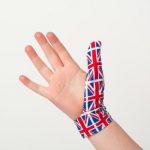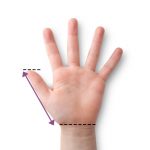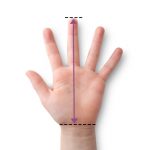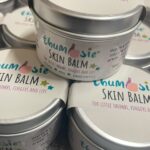You’re not alone if you find your children’s bad habits and behaviors worrying and somewhat annoying. It seems there are many that our children can choose from!
When you decide you want to change an unwanted behavior or habit, it best to try and understand why your child is doing it in the first place. Often children’s bad habits are just a coping strategy or done out of insecurity. Your child may rely on these behaviors when they are bored, frustrated, stressed, tired, unhappy, insecure, or when falling asleep. Many children find that these “bad” habits are soothing and calming to them, so be clear as to why you want to stop them.
These behaviors are just “phases” or habits, most of the time —they are not normally a serious medical problem—and your child should typically outgrow them in time. Managing them, however, can be difficult and can be frustrating as a parent. As a general rule, the experts say that we should just ignore children’s bad habits. Shouting, getting cross, and giving out punishments do not usually work to stop the behavior (and may make it worse!), but praise, positive rewards, and patience are likely to help. Often the child doesn’t even know that they are doing the bad habit so need help. I have also read that any habit can be broken within 3 weeks if stopped 24/7 during that time.
Thumb or finger sucking
Thumb and finger sucking is one of the classic children’s bad habits that poses a dilemma to millions of parents worldwide, so you are not alone. According to the experts, most children outgrow this by themselves, but prolonged thumb or finger sucking can cause problems. Problems such as: open bite, speech problems, chapped skin, problems chewing and teeth pushed forward.
Thumbsie® has helped many children over the past few years stop thumb and finger sucking. It’s a fun fabric guard that helps break the habit. To make sure it’s a positive experience, get your child to choose their fabrics, they are many to choose from, we also have Reward charts to help you encourage them. Thumbsie® thumb guards are recommended and encouraged by dentists.
Recommended by Dentists worldwide
“I love the Thumbsie® – it works every time I recommend it! The Thumbsie® provides a fun way for a dentist or parent to help the child stop sucking because after all, it’s a hard habit to kick." Dr. Kotecha of Glen Dental Buy NowTeeth grinding
Bruxism, (the medical term) for teeth grinding or clenching, is apparently a habit seen in over half of all infants of normal development. It usually starts when the baby teeth come in around the age of six months and then again around five years when the permanent teeth grow. Children usually grind their teeth at night when they are sleeping. In some circumstances, nighttime grinding can wear down tooth enamel and chip teeth. You could try to concentrate on relaxing and elevating stress before your child goes to sleep. Make sure that they have plenty of water in their diet. Children usually outgrow it, but the bruxism may continue into adulthood. Its advisable to see a dentist if you are concerned that the teeth grinding is causing dental problems or a disorder of the jaw joint, they may suggest wearing a mouth guard at night.
Nail biting and cuticle picking
Nail biting or cuticle picking and biting is common in children and adults alike. It may be a concern if it results in infection of the nail or bleeding. Once you have established the reason your child is biting their nails try and help with positive reinforcement. You could try praising them when they are not doing it. Try giving them things to do with their fingers when they are most likely to bite. You could try painting the nasty nail polish on or getting them to wear gloves. Apparently, according to a recent study nail biting could help with your child’s immune system and leave them less likely to suffer from allergies. Personally I not like to see anyone biting his or her nails regardless of this recent health positive and it so much harder to give up later on in life. I should know, I still bit my nails at 52 so if anyone has a great cure I would love to know.
Hair twirling/pulling
Hair twirling or hair pulling that results in minimal hair loss is another self-soothing behavior seen in children. Like thumb sucking, it often occurs when the child is bored, relaxed, tired to trying to fall asleep. Children usually outgrow this habit on their own.
Trichotillomania, is a more serious form of hair pulling. This involves pulling the hair out from the eyebrows, scalp, eyelashes, and/or pubic areas. This is a rare disorder that may suggest an underlying psychological problem and should be seen by an expert. Thumbsie® fabric thumb guards have helped children with trichotillomania, as the child finds it difficult to carry out the hair pulling with it on.
Nose picking
Another one of our children’s bad habits nose picking is one of the most common bad habits among children and adults, which is aggravating as it one of the least socially acceptable behaviors.
It worth trying to explain that they are more likely to get sick and pass their germs to others if they pick their nose or they could get worms. Insist that they wash their hands after they pick or blow their nose. Often a little Vaseline a couple times a day inside the nose will help to break the vicious cycle of nose irritation and picking.
If you have any great stories of things you have tried to get your children’s bad hibits to stop we would love to here from you, email us on hello@thumbsie.co.uk
Please note all comments will need to be approved before appearing on this page. Please respect others when posting.





























Comments